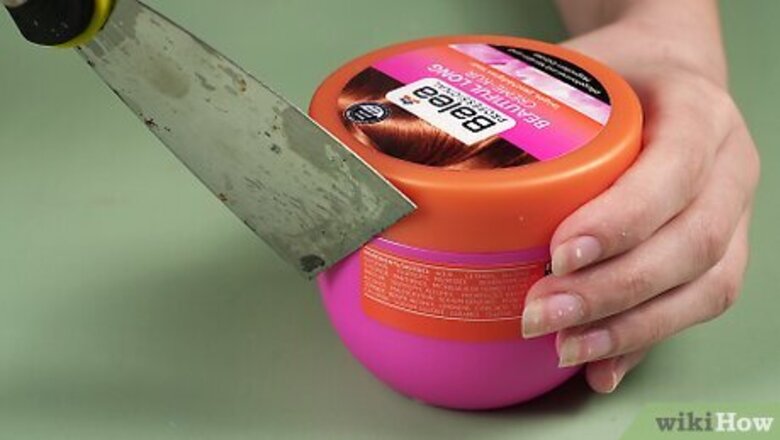
views
Scraping off the Sticker
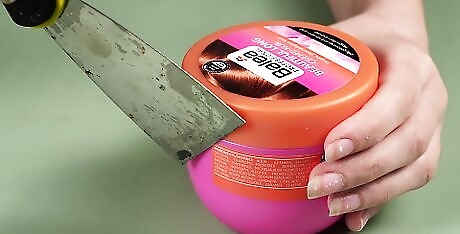
Pry up the corner of the sticker with a thin utensil. If you’re not worried about scarring the surface, a razor blade or putty knife will give you the best results. Otherwise, get your hands on a softer plastic scraper. Work on the outer edge of the sticker until you have enough loose material to grab. Razor blades and other sharp scrapers are best suited for use on glass, smooth, hard metals, and similar materials that aren’t easily damaged. If you’re in a bind without a lot of options, a credit card or similar object can also do the trick.
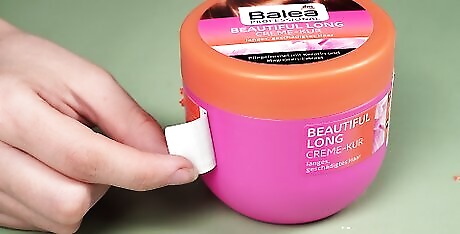
Lift the loose corner of the sticker. Pull the flap up and away from the sticking surface, being careful not to force it too much. Hold it in place with one hand and ready your scraping tool with the other. Do your scraping with your dominant hand to maximize your efficiency and precision.
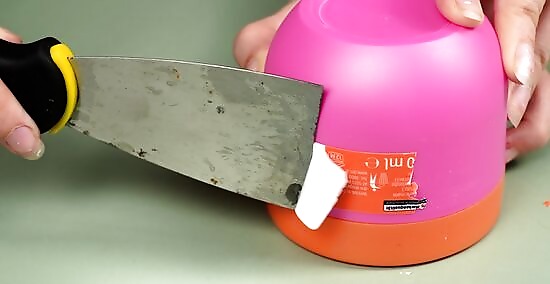
Run the scraper under the sticker using small movements. Push the flat edge of the scraper against the bottom of the sticker where it meets the sticking surface. This little bit of pressure should be enough to break the hold of the adhesive little by little. Getting impatient or scraping too aggressively may cause the sticker to tear, forcing you to start the process over again and possibly leaving behind a layer of difficult residue. Avoid digging the scraper too hard into the underlying surface. If you’re not careful, it could leave behind unsightly scratches.
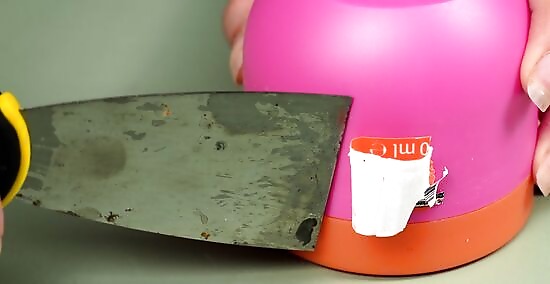
Continue pulling and scraping until the sticker comes free. After a few passes with the scraper, readjust your grip on the loose edge so that it’s pulled taut. Then, go to work with the scraper some more. Keep at it until you reach the far end. If the adhesive is putting up some resistance, try moistening it with warm water (assuming it’s been applied to a waterproof surface). This method is useful for getting rid of slightly older stickers that are too stubborn to peel off by hand, but can’t or don’t need to be treated with heat, oil, or moisture.
Heating the Sticker with a Hair Dryer
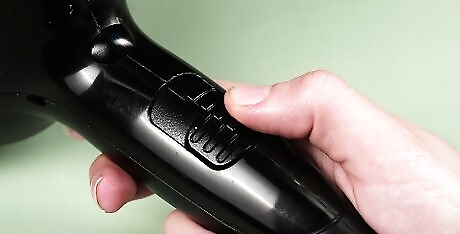
Set the hair dryer to a high heat setting. Turn the hair dryer on and give it a few seconds to start warming up. The heat from hair dryer will soften the adhesive of old dried-up stickers that have become cemented in place. There’s a chance that direct heat could damage the sticking surface if it’s made from a material like plastic, vinyl, or leather. In this case, it may be better to go with an alternative method of removal.
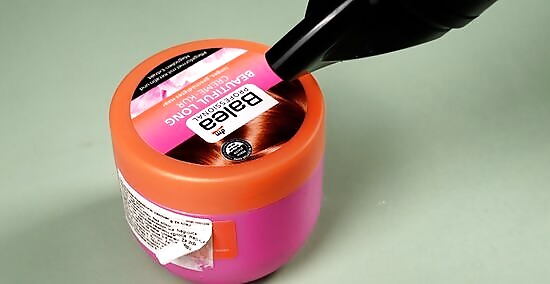
Hold the hair dryer over the sticker for 30 seconds. Position the nozzle about ⁄2 foot (15 cm) away from the sticker. Wave the hot air back and forth from one end to the other. Continue blasting the sticker for up to a full minute. You may notice the sticker material beginning to curl or wrinkle—this is a sign that it’s working.
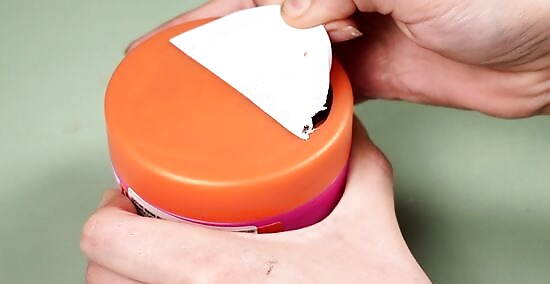
Peel off the sticker by hand. Turn off the hair dryer and set it aside. Loosen one edge of the sticker with your fingernail, then pull it slowly until it comes away clean. Use a soft scraper tool to dislodge any residue that’s left behind.
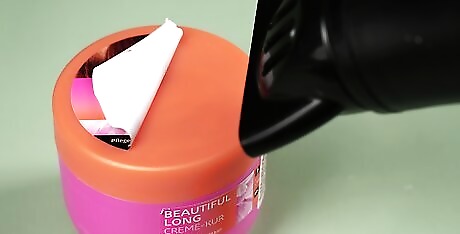
Continue heating in 30 second intervals. If the sticker is still putting up a fight, you may need to blast it again to get it. Repeat the heating process 2-3 more times, giving it a test pull after each pass. It should only take a couple minutes at the longest to see an improvement. Peeling or scraping the sticker from underneath may help to get it started if the heat alone isn't having the desired effect.
Soaking the Sticker in Hot Water
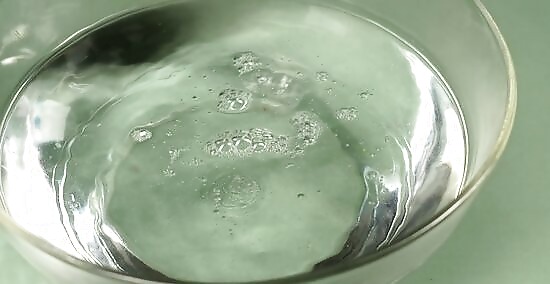
Fill a large container with hot water. Whatever container you choose should be big enough to accommodate the item you’re soaking with a little extra room. Turn on the tap and let it run until it’s warm to the touch, then position the container underneath. Don’t get the water too hot—there’s a chance it could scald you or partially melt the item. Leave a few inches of space at the top of the container. You’ll be adding to the overall volume when you insert the item, which could cause it to overflow if you’re not careful. This method shouldn’t be attempted to loosen stickers on belongings that are vulnerable to moisture-related damage, like electronics, paper products, or certain types of wood.
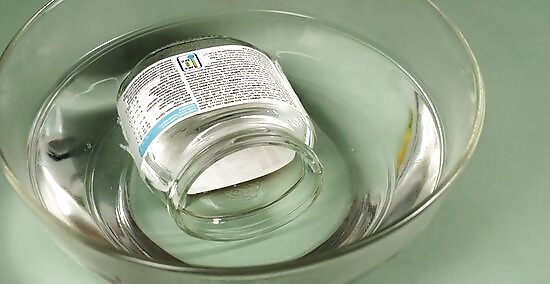
Submerge the item with the sticker on it into the water. Lower the item slowly to avoid splashing. Make sure the sticker is facing down so that it stays completely immersed the entire time. The heat from the water will begin working its magic right away. You also have the option of running a stream of hot water over the surface of the item if it’s too big to cram into a separate container.
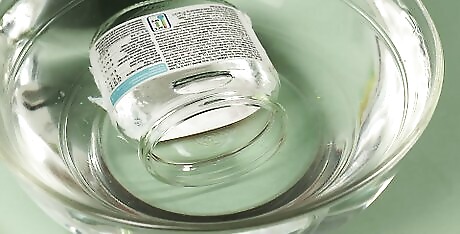
Let the item sit for 3-5 minutes. This is the minimum amount of time needed to soften up the sticker enough to remove it by hand. The longer you leave it, though, the better the results will be. If you’re dealing with multiple stickers, you might need to give the item a few extra minutes to soak. Turn items with lots of stickers every so often so that they all spend an equal amount of time underwater. Watch for the sticker to fade or wrinkle as the hot water breaks down the adhesive.
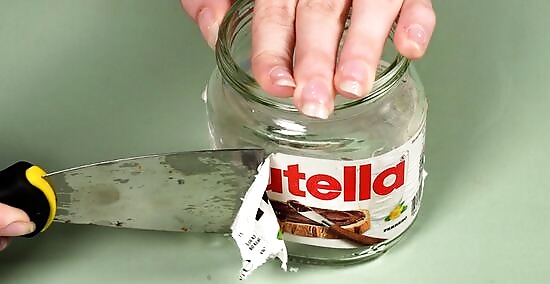
Peel or scrape away the sticker. Lift the item out of the bath and shake off the excess water. Set it on a stable surface and pull off the sticker in one piece. If it’s still holding on in spots, use a soft scraper tool to coax the adhesive away from the sticking surface. It shouldn’t take much force to get it to let go. The scrubbing side of a dish sponge is perfectly suited for lifting away soggy sticker residue after a long soak, while the soft side can offer a gentler touch for more delicate items.
Dissolving with Chemical Solutions
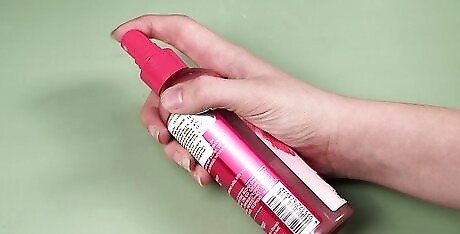
Find a chemical solution safe enough to use on your belongings. When milder methods won't do, you may need to try a special adhesive remover product like Klean-Strip or Goo Gone. If you'd rather not bother with a shopping trip, search your cabinets and equip yourself with some rubbing alcohol, hand sanitizer, WD-40, or a bottle of clear liquor. Any of these items will be potent enough to leave most surfaces squeaky clean. A strong chemical solution will disintegrate the adhesive little by little until it loses its grippiness. Alcohol-based products are especially useful for drying out adhesives that have become fused in place.
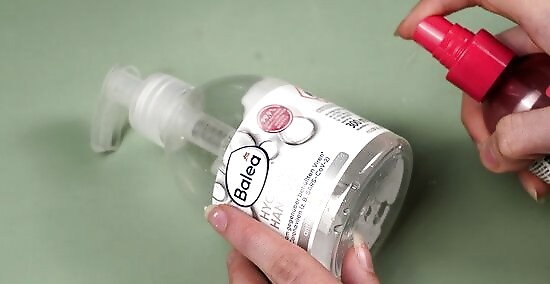
Spread the solution over the sticker. Absorb a small amount of the product into a clean cloth and wipe down the sticker using a circular motion. If you're using a spray cleaner, cover the sticker with a light mist and allow the liquid to settle. Be sure to hit the surrounding area, as well. Make sure the solution doesn’t drip down into the smaller openings of electronics and mechanical items. Spot test the item in an out-of-the-way area so you can see how it will react to the product you're using before you slather it on.
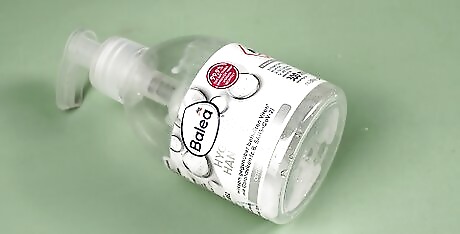
Let the solution sit for 5 minutes. As it sits, it will begin to slowly seep under the edges of the sticker and go to work directly on the adhesive. When time’s up, pat the area dry with a paper towel to remove the excess cleaner.
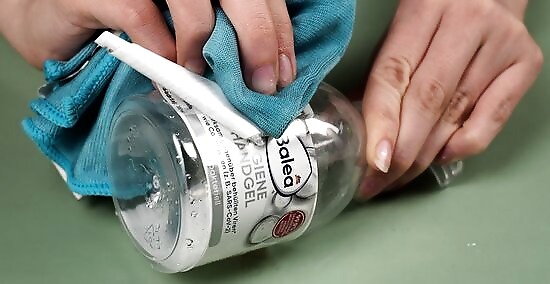
Wipe away the sticker. Drag a damp cloth or sponge over the surface to dislodge what's left of the sticker. It should come away in one big piece. Use the product remaining on your scrubber to buff out faint streaks of adhesive or paper left behind. If there are any heavy patches of adhesive residue clinging to the surface, apply a little fresh solution and go over it with a little elbow grease. Be sure to wash your hands thoroughly after working with harsh chemical cleaners.
Loosening the Sticker with Oil
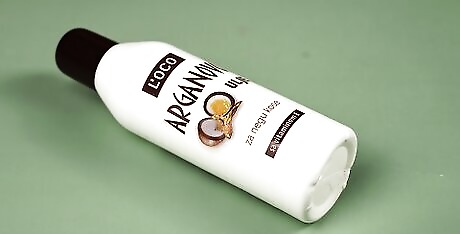
Grab a product with a high oil content. Chances are, you’ve got plenty of items sitting around on the shelves of your pantry just waiting to be put to use. A bottle of ordinary cooking oil like olive or canola oil, for example, will bust up even the most difficult stickers. You could even use peanut butter or mayonnaise to achieve the same effect! A tablespoon of baking soda can up the unsticking power of oil-based products. These types of substances tend to work best on smooth, hard surfaces that aren't at risk of becoming darkened or discolored by oils.
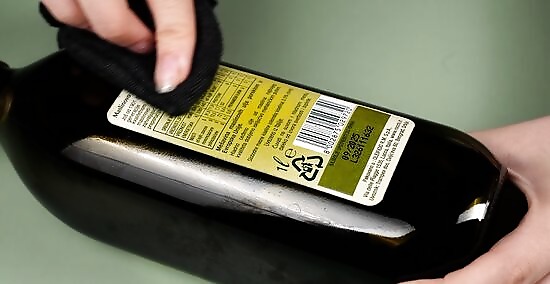
Smear the oil onto the sticker. Use a clean cloth to soak up a quarter-sized amount of oil and rub it over the entire surface. If the product is especially thick, it may help to pick up a flexible utensil like a rubber spatula or brush that will allow you to spread it around exactly where you need it. Avoid pouring thinner oils directly onto the surface. It can be easy to oversaturate it this way.
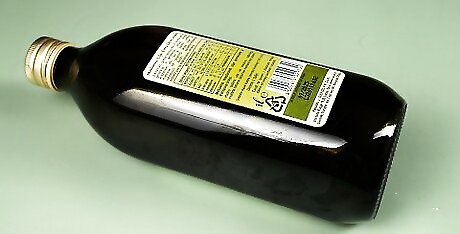
Leave the oil in place for 10-20 minutes. Little by little, it will coat the bonds between the adhesive and the sticking surface and the sticker will begin to slip. The longer you allow it to take effect, the better the outcome will be. Wipe the excess oil away with a paper towel when time is up. Newer stickers may even come unfastened before you ever touch them. If you used a thicker oily substance, such as peanut butter, you may need to use a heavier towel or washcloth to expose the sticker underneath.
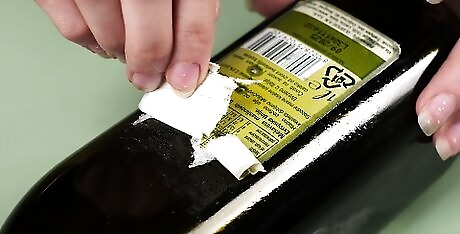
Pull or scrub the sticker away. Scrape up the outer edge with your fingernail, peeling it back gradually until it’s free. A soft kitchen sponge may come in handy for breaking up the last few bits of adhesive. By this point, it will likely have been reduced to a papery goop, so you shouldn’t have too much trouble. Wipe the area clean with a towel and enjoy your new sticker-free surface! Eliminate any remaining patches of residue by blotting the spot with the corner of a towel soaked in oil. A light dusting of cornstarch or baby powder can absorb leftover oil coating the sticker surface.














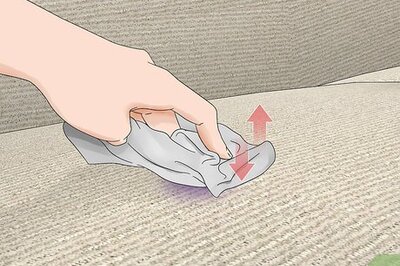

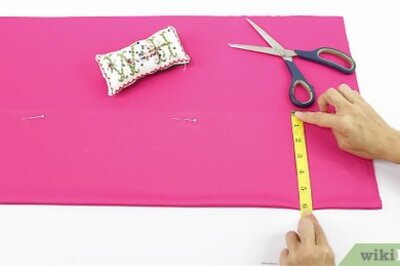
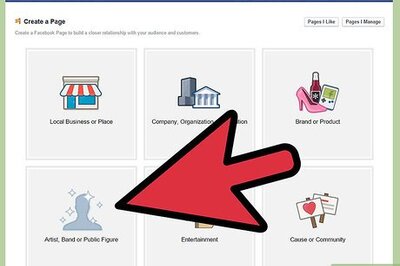
Comments
0 comment